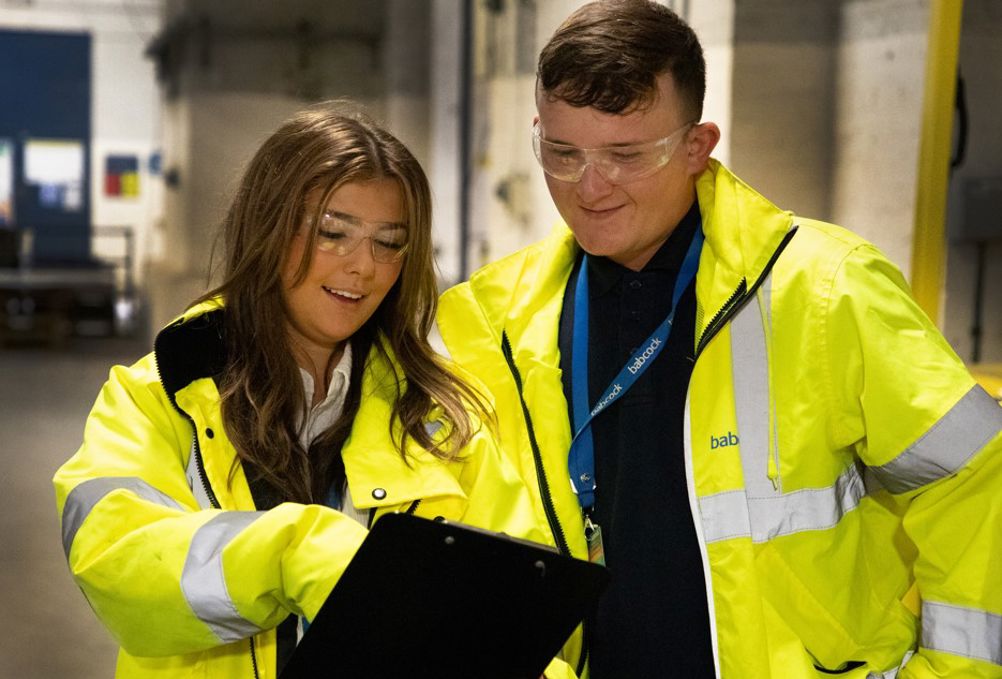As we are about to reach the end of 2024 and start a new chapter in 2025, I’m taking the time to reflect on what we at Babcock International have achieved over the past year and what we can expect to see as an engineering community in the coming months.
One of the continuing areas the engineering industry, and our partners, will need to invest in is skills. Skills to create, build, develop and deliver the critical and complex programmes companies like ours manage.
That skills ‘pipeline’ includes the whole gamut of engineering skills, manufacturing skills, digital skills and traditional industrial skills – whether that is recruitment, upskilling or reskilling. It remains one of the biggest challenges in our industry and across the defence sector, as we plan and prepare for the years and decades ahead.
How does this impact crystal ball gazing for technology? Simple. We cannot invest in technology without investing in people. Certainly for 2025 and beyond, this is going to be a continued focus area for Babcock and our partners.
One could argue that the skills challenge is something that has already received considerable attention across countless discussion forums and political arenas – but the reality remains that unless we have a significant change in approach, the lack of appropriate and specialist skills we need is undoubtedly going to have an impact on the critical work we do and will deliver for our customer.
If we take a deeper dive into the national nuclear sector, both civil and defence, the figures show the industry really does have its work cut out. Current estimations are that the nuclear industry in the UK currently has a shortfall of around 9,400 people but it needs to grow to 123,000 (from 83,000) by 2030 – a staggering increase of nearly 50%.
In order to meet demand from the growing civil and defence nuclear programmes, and to replace people who leave the sector, it will need to fill 40,000 new jobs by 2030. All this against a backdrop of an ageing demographic where 35% of the nuclear workforce are over the age of 50 and with new sectors and technology industries also looking to attract from the same pool of candidates.
Other areas that we will need specialist skills in include High Frequency Communications, advanced manufacturing, digital technologies such as artificial intelligence (AI) data engineering, data science, naval architects and software engineering to name a few. This skills demand can be seen in other areas such as space, where Babcock for example, is responsible for managing the UK Government’s military satellite communications programme – Skynet.

To help combat this we have launched our own Babcock Skills Academy to develop submarine capabilities in our growing workforce and recently opened our inaugural Babcock Engineering & Nuclear Skills building at City College Plymouth. Our hybrid Skills Academy has been a collaboration combining cutting-edge digital resources and hands-on training to ensure we continue to deliver the critical capabilities needed by our customers. It is open to all employees and new recruits, and operates in partnership with local education establishments, and our early careers programmes. We are placing much more emphasis on collaboration and engagement to achieve accelerated outcomes to support the technology and engineering skills we need for the future. Anticipating around 10,000 learners through the Skills Academy in the next five years.
Another area which will see continued focus in the coming year is collaboration. Sometimes used as a buzzword, but real collaboration can drive huge results. Along with our fellow defence partners we are part of the Government’s Defence Suppliers Forum (DSF), and we are collaborating closely with partners such as Engineering UK and their equivalents overseas.
In fact, the number one aspiration of DSF for 2025 is around an agile, secure, sustainable and resilient supply chain and ensuring the defence enterprise of the UK, which includes industry and Government has the right skills and talent it needs for the future. So along with our strategic partnerships we are already planning what that will entail and we cannot do it alone.
We often say innovation doesn’t just sit in the technology we create, develop and integrate, it resides in our people.
But by working together, and by building on our strategic partnerships with our partners, academia, training providers and STEM activities, we will seek to attract the best people into engineering and technology so we can continue to deliver world class capability on the complex programmes we support.
This article was originally published in The Engineer's 2025 Tech Trends supplement in which key commercial partners offer their take on the technologies that will shape the year ahead.
For more about Babcock visit: https://www.babcockinternational.com/












Radio wave weapon knocks out drone swarms
Probably. A radio-controlled drone cannot be completely shielded to RF, else you´d lose the ability to control it. The fibre optical cable removes...